In place of the traditional transformer, one takes advantage of the capacitive reactance of a good quality polyester capacitor to reduce the voltage of the power grid. The design we present can operate on both 110/127 V and 220 V mains and provides a current up to 20 mA. The output voltage depends only on the zener diode used, being between 3 V and 12 V. Smaller voltages can be obtained with a reference formed by common diodes, as shown in figure 1.
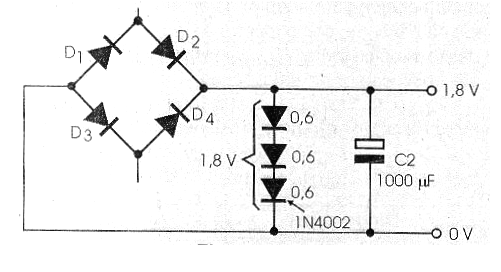
Each diode provides a voltage drop of the order of 0.6 V when used as a reference. Thus, for 2,4 V it is enough to use 4 diodes in series. An LED can also be used as a 1.6 V reference for red types. For the yellow and green types the reference will be 1.8 V and 2.1 V as shown in figure 2.
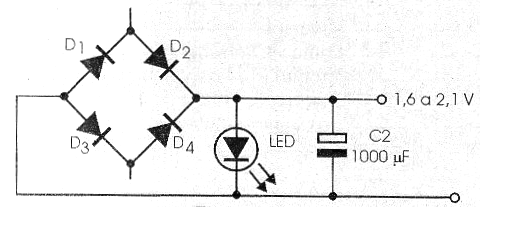
Of course, since it is a source that is not isolated from the power grid, it should have no exposed parts and no appliances to be supplied. Small radios, calculators, clocks are some of the gadgets that can be powered by this source. In figure 3 we have the complete diagram of the simple source.
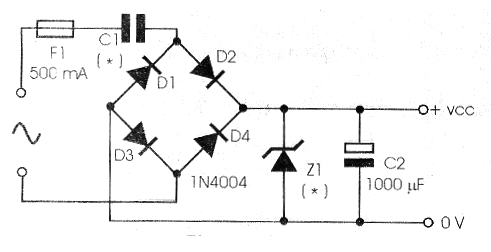
Its assembly requires no more than a small terminal strip to support the components, as shown in figure 4.
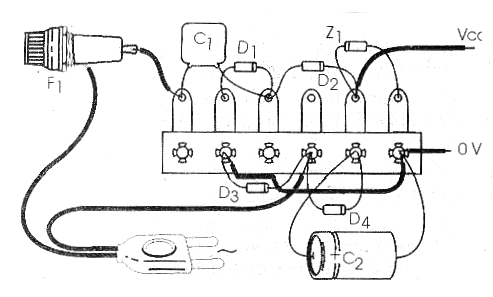
Of course, if the reader has the resources to make printed circuit boards, he can use the pattern of figure 5 as a reference.
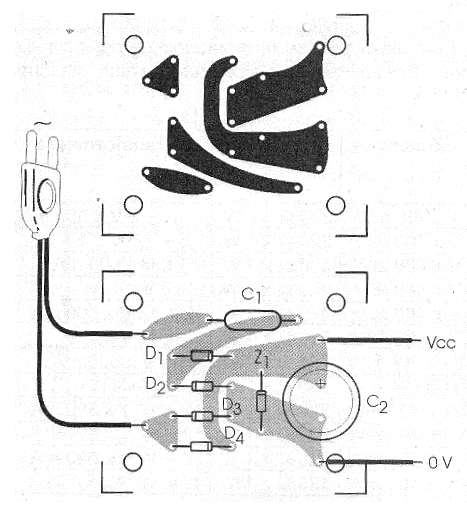
The critical component of this design is the capacitor which must have values ??and working voltages as shown in the following table. A good quality polyester capacitor should be used:
| Input Voltage | Maximum output current | Capacitor (maximum voltage) |
| 110/120 V | 15 mA | 390 nF x 200 V |
| 110/120 V | 20 mA | 470 nF x 200 V |
| 110/120 V | 30 mA | 1 uF x 200 V |
| 220/240 V | 15 mA | 220 nF x 400 V |
| 220/240 V | 20 mA | 270 nF x 400 V |
| 220/240 V | 30 mA | 470 nF x 400 V |
The input fuse is important to protect the circuit, since if the capacitor goes short, the power must be turned off immediately.
The electrolytic capacitor must have a working voltage slightly higher than that desired at the output. For example, for a 6 V output, use a 12 V or 16 V capacitor. The circuit fits into a small, battery-eliminator type pluggable in the network itself from any common outlet.
D1 to D4 - 1N4004 - silicon diodes
C1 - Polyester capacitor - see table and text
Z1 - Zener from 3 to 12 V x 1 W - according to the desired output voltage
C1 - 1 000 uF - electrolytic capacitor - see text
F1 - 500 mA - fuse
Miscellaneous:
Terminal strip or printed circuit board, power cable, fuse holder, wires, solder, mounting box, etc.



